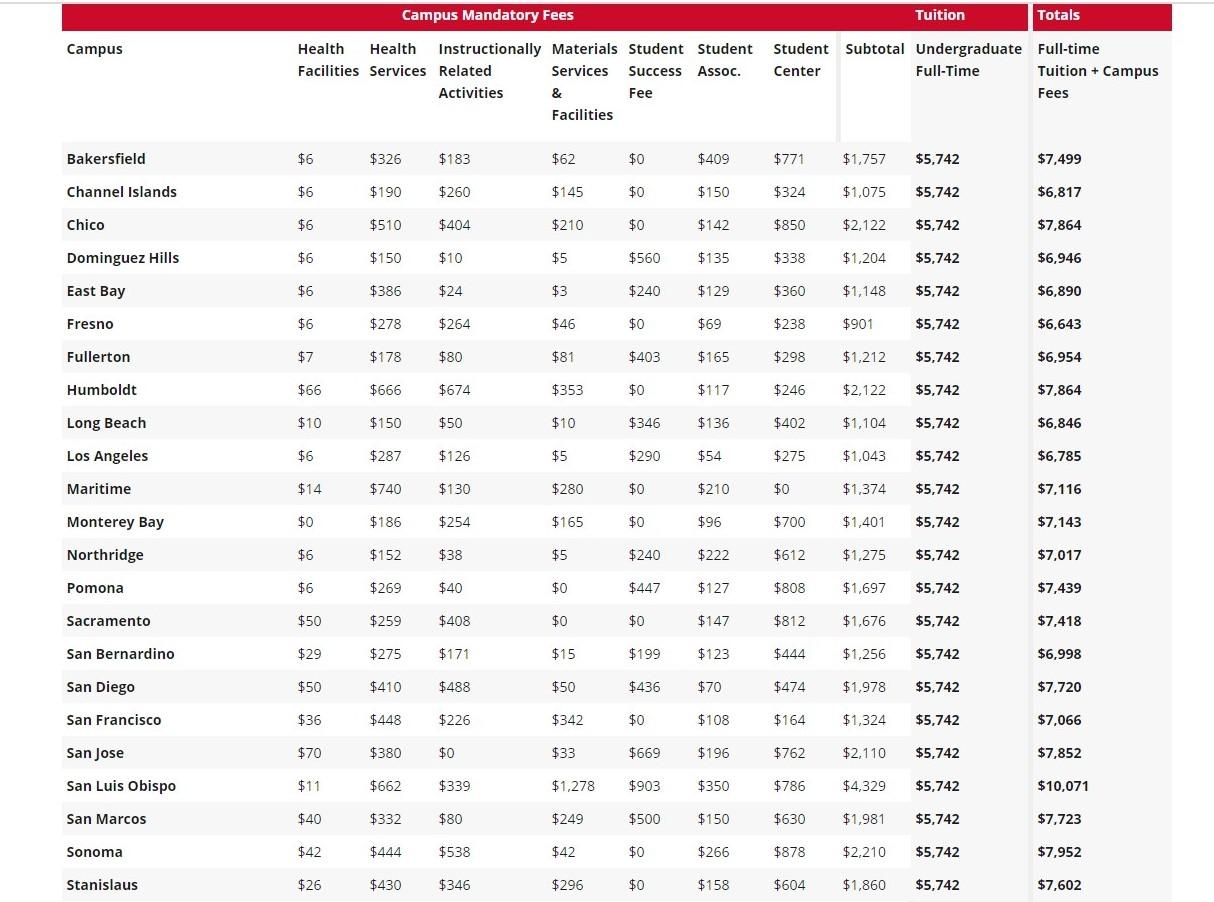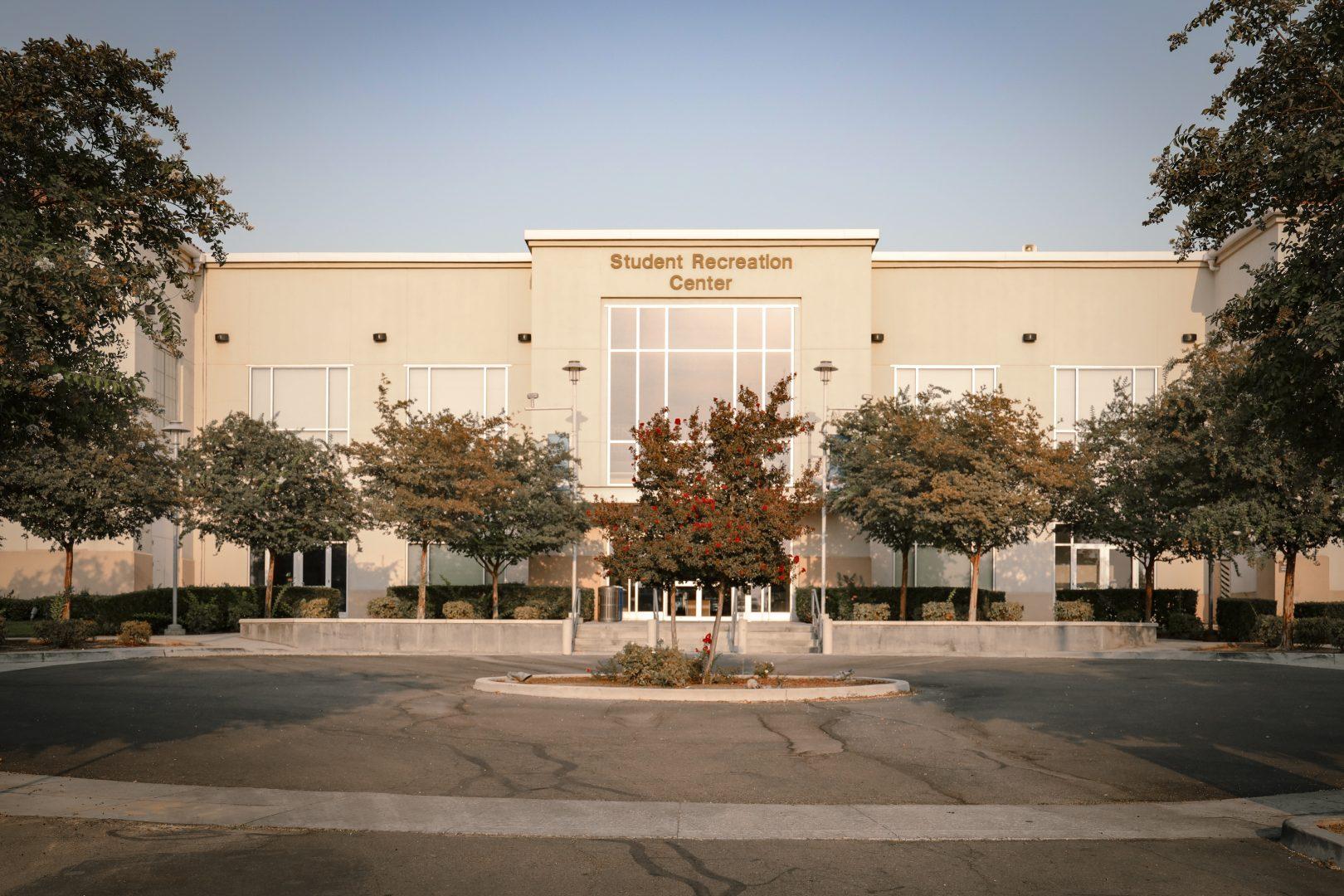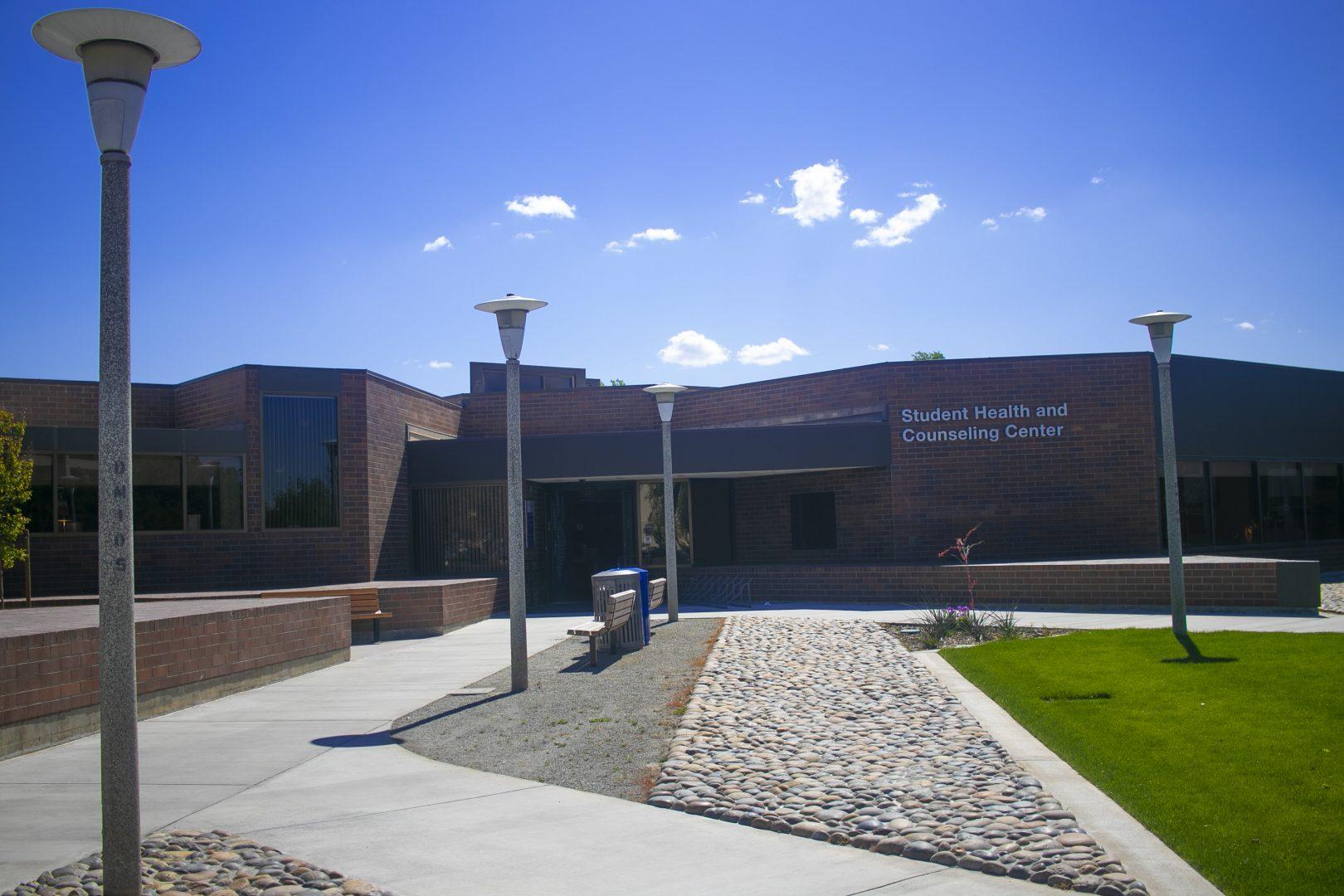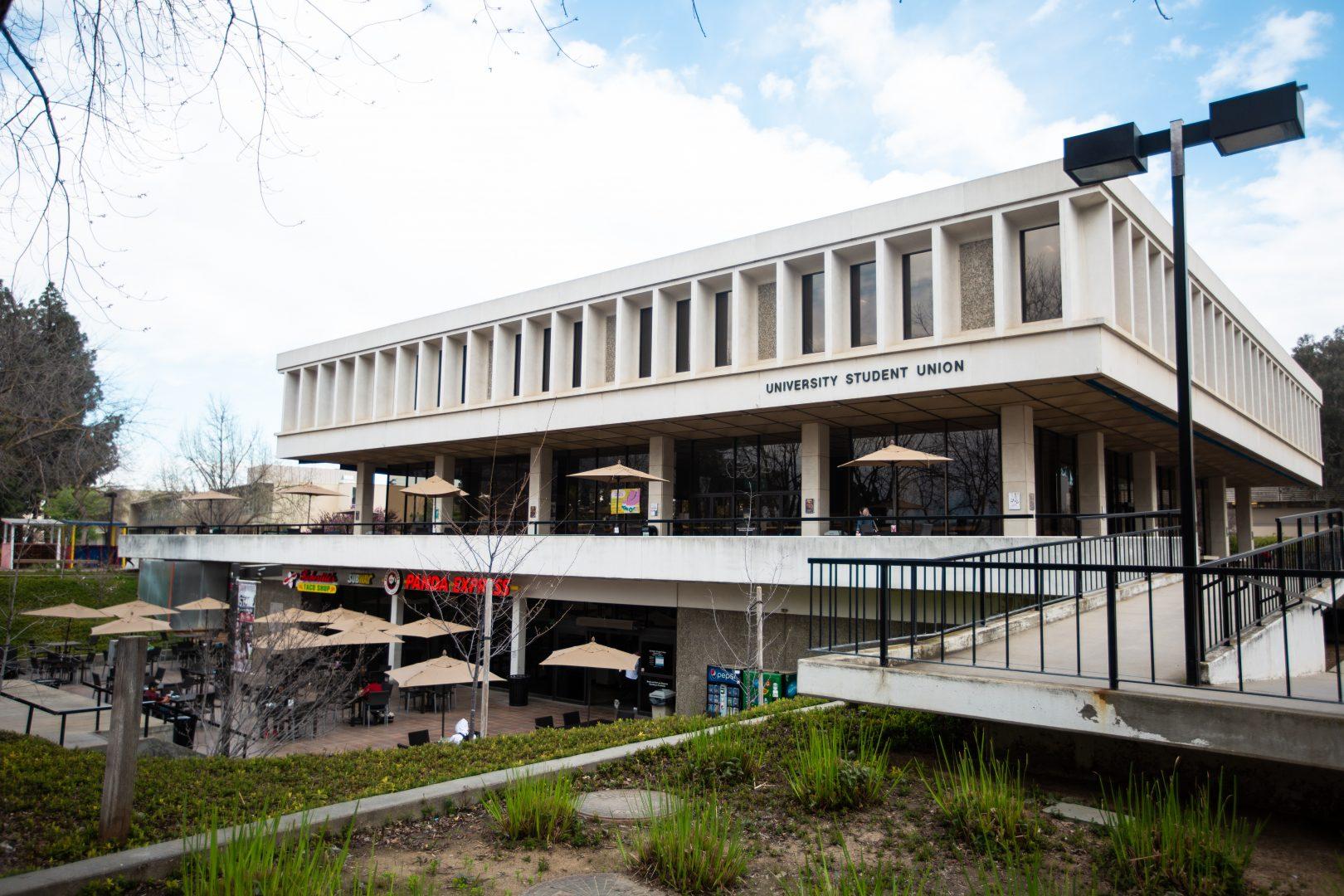Within the California State University (CSU) system, Fresno State is one of the most affordable schools when it comes to tuition and campus fees. The university charges students a total $901 per year in mandatory fees.
Fresno State has the lowest fee total during the 2020-21 academic year with the next lowest being CSU Los Angeles at $1,043 per year, a $142 margin. In terms of proximity, CSU Bakersfield charges $1,757 per year in mandatory fees. And Cal Poly has the highest fee charging $4,329 this year.

However, while Fresno State’s fees may be affordable, some students do not see the need for paying those fees, especially if they are not utilizing some of the services the fees go toward.
“Personally, I don’t think students should have to pay the same amount of fees this semester since classes are online. Many students might not even visit campus at all during fall semester due to the pandemic,” Fresno State senior Stephania Ramirez said.
Ramirez said students won’t be able to use all of the services they are paying for due to the pandemic, so the idea that students have to pay the same amount in fees should be reconsidered.
Other Fresno State students, like Ramirez, have expressed that since they won’t be on campus to access amenities like the University Student Union (USU), Student Recreation Center and Student Health and Counseling Center they feel students should not be charged for those fees.

Debbie Adishian-Astone, vice president for administration and chief financial officer, said certain fees also support Associated Students Inc., academic retention and support, progress towards degree completion and many other services. This is most evident in the $132 Instructionally Related Activities (IRA) fee.
Besides the health service and IRA, students pay $3 for facility fee, $5 Bulldog card fee, $18 student academic service fee, $34.50 student body fee and $119 USU fee per semester.

For Fresno State senior, Sommer Hijazi, the topic of paying mandatory fees is a hard one. Hijazi said that she believes that college could be paid for by the government, and ethically feel that a lot of school fees are unnecessary.
However Hijazi said she understands why there are fees to begin with.
“For my peers, of course I’d pay it.” said Hijazi.
Before the start of the semester, many students also discussed whether or not they should pay the mandatory $139 health service fee each semester.
While students are not allowed to opt out of paying campus fees, the Student Health and Counseling Center gives students the chance to sign a waiver, if they are qualified to do so, and receive an reimbursement.
“Personally, I would caution students before they elect to apply for a waiver. The student health fee provides students medical and psychological care at an extremely low cost,” said Janell Morilla, the associate vice president of student health, counseling and wellness. “Especially now with all of our services being available through telehealth, any student can get access regardless of where they live.”

All enrolled students, with or without insurance, are granted access to healthcare or psychological services because of the fee. Morilla said that there are two kinds of services the center provides: no-cost services and low cost services.
No-cost services include medical and counseling visits, minor surgery and procedures, family planning and sexually transmitted infection (STI) screenings and treatment, x-rays, laboratory, physical therapy, nutritional counseling services and wellness services.
Low-cost services provided include pharmacy items, immunizations and laboratory testing (sent to an outside laboratory).
This semester the health service fee increased by $26 dollars ($52 a year), bringing the total health fee price from $113 to $139 per semester and $226 to $278 a year.
In February, the increase was enacted for this fall and will continue to increase by 3% each year for the next five years until it is reviewed again.
The increase in funds were given towards counseling and psychological services with the addition of two counselors and a case manager, raising the total number to 11 counselors and two case managers.
Although students have the opportunity to opt out of the health service fee with a waiver, according to the current CSU policy, paying other campus fees are mandatory, and students are not permitted to opt out.
“Unfortunately, we are not able to refund or prorate campus based mandatory fees because they cover annual fixed expenses that the university continues to incur during the pandemic,” Astone said. “Such as debt service, facility repairs and maintenance, utilities, employee wages and benefits and student-life programs (many of which continue to be provided virtually).”
The IRA fee is in place to help reduce Associated Students responsibility for financial support of instructionally related activities.
“Mock Trial receives its funding through the IRA to travel the same with Moot Court. I get to go to Orlando, Baton Rouge, up and the coast; amazing places I would have never been able to travel to before if it wasn’t for joining those clubs and paying the IRA fee,” ASI Interim President Hisham Qutob said.
The IRA fee provides funds to clubs like Mock Trial and Moot Court, as well as intercollegiate athletics, art exhibits, concert and marching band, drama performances and many others, according to the tuition and fees section of the Fresno State website.
Some students within the campus community may still be unaware of what their campus fees are going toward. Because of this, ASI is implementing a crash course on student fees.
“[We’ll have videos] … explaining to students what their fees are, how much their fees are, why their that amount being allocated and the categories of fees because a lot of fees we don’t get to determine,” Qutob said. “There’s a whole process behind the scenes by the [CSU] Chancellor’s office and our hire ups through our campus.”




